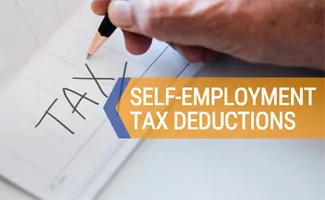When you purchase through links on our site, we may earn a commission. Here’s how it works.

Unfortunately, this is exactly what millions of Americans experience every tax season. Did you know there are ways to prevent this?
Article Overview
- 8 Signs That You’ve Been A Victim
- What To Do Next
- 6 Preventative Measures To Help Avoid Tax ID Theft
- H&R Block CEO: Tax ID Theft Prevention Advice (Video)
- What’s The Cost Of Tax ID Theft?
- How Long To Get A Refund
- Frequently Asked Questions
- How To Know (And What To Do) If Your Identity Is Stolen
8 Signs That You’ve Been A Victim Of Tax ID Theft
According to the IRS Taxpayer Guide To ID Theft, there are 8 likely scenarios that might indicate your identity has been compromised:
- You receive a letter from the IRS inquiring about a suspicious tax return that you did not file.
- You can’t e-file your tax return because of a duplicate SSN (Social Security Number).
- You receive a tax transcript in the mail that you did not request.
- You receive an IRS notice that an online account has been created in your name.
- You receive an IRS notice that your existing online account has been accessed or disabled when you took no action.
- You receive an IRS notice that you owe additional tax or refund offset, or that you have had collection actions taken against you for a year you did not file a tax return.
- IRS records indicate you received wages or other income from an employer you didn’t work for.
- You’ve been assigned an Employer Identification Number but you did not request an EIN (Employer Identification Number – the business equivalent of your SSN).
What To Do If You Feel You May Have Been Compromised
The IRS recommends you take the following steps if you feel one of the above has occurred that may have resulted in your identity being compromised:
- Respond immediately to any IRS notice. Call the number provided once you’ve confirmed the number is a legitimate IRS phone number (plug it into Google to confirm or visit IRS.gov for a listing of numbers).
- If your e-filed return is rejected because of a duplicate filing under your Social Security number, or if the IRS instructs you to do so, complete IRS Form 14039, Identity Theft Affidavit. Use a fillable form at IRS.gov, print, then attach the form to your return and mail your return according to instructions.
- Visit IdentityTheft.gov for steps you should take right away to protect yourself and your financial accounts.
6 Ways To Help Prevent Tax Identity Theft In The First Place
The best way to avoid false tax return identity theft is to be vigilant starting now.
1. Apply For An Identity Protection Pin (IP PIN) From The IRS
Identity thieves can file a tax return on your behalf and block you from filing your taxes on time, while possibly recouping your tax refund. Help prevent this potential identity theft by applying for an Identity Protection PIN (IP PIN) from the IRS, using your SSN or Taxpayer ID Number (TIN).
Once you make this request, you will always need the IP PIN each time you file your federal taxes. You will need a new IP PIN every year to file. Keep your IP PIN in a safe place.
2. File Your Taxes Early
The sooner you file your taxes the least likely someone else has already used your social security number (SSN) to file a fraudulent tax return. Filing sooner than April is also convenient because the earlier you file, the sooner you get your refund back (if you’re getting one).
3. Share Your Personal Information Cautiously
Be vigilant about who you share your personal information with and how you do so. If someone requests personal information electronically, be sure to verify with a phone call to understand why they need it and the best way to deliver.
This may sound obvious but don’t share your address on social media platforms, never share a password with someone over email or text, and don’t share your social security number with the cashier at the store.
Sometimes you need to share your personal information with professionals. But, be sure the professional you are working with is trustworthy.
For example, sharing your SSN with your tax professional is necessary. When my tax professional asked for my SSN, he had me write it on a sticky note, so I didn’t have to say it out loud and risk someone overhearing me (even though we were in his private office). He then shredded the sticky note, so that no one could snatch it up.
Items to be careful sharing with others:
- SSN
- Driver’s license
- Birthdate
- Address
- Bank account information
- Credit/debit card details
- Passwords
4. Use A Shredder
Per the accountant’s example above, use a paper shredder for any paperwork you are recycling that has any personal information on it.
Things you should shred:
- Bank statements
- Insurance papers
- Pay stubs
- Medical records
- Social security statements
- Retirement documents
- Anything with your:
- Name
- Address
- Phone number
- SSN
- Bank account information
5. Don’t Email Attachments Containing Important Information
Don’t share your 1099’s, W2’s, previous returns, and any other tax-related documents via insecure email. If you need to share these documents with your accountant, provide the printouts by handing them off in person or upload them to a secure 3rd party service that is password protected and ideally, has two factor authentication (2FA) set up.
If you are filing by mail, personally drop your returns off at the post office and register for a delivery receipt to ensure it is not lost in the mail.
6. Use A VPN
A VPN masks your online use from potential hackers by creating a secure, encrypted connection that lets you file your taxes online without risk. VPN services also hide your location and internet history from companies tracking your data. Checkout the best VPN’s in our comprehensive review.
How Long To Get A Refund After Tax ID Theft?
The IRS will work to correct your stolen identity refund, issue your refund (assuming you qualify for one), and help protect you from future tax ID theft. This process can take as little as three months or as long as a year, depending on your circumstances. Visit the IRS ID Theft Victim Assistance page for more information.
More Tips To Avoid Tax Fraud Identity Theft (Video)
Watch this video from H&R Block’s President and CEO which discusses how you can avoid tax ID theft. H&R Block is one of our top picks for best online tax software.
Frequently Asked Questions
Is Loss Of Property Due To Tax ID Theft Tax-Deductible?
According to LIFARS, loss of property due to ID theft may be tax-deductible. According to the IRS, “a theft is the taking and removing of money or property with the intent to deprive the owner of it. The taking of property must be illegal under the law of the state where it occurred and it must have been done with criminal intent.”
It’s important to note this tax rule is specific to losses only. If the financial institution does not hold you responsible for the loan taken out in your name or your home owners insurance pays for your losses, you cannot claim it as a loss.
Generally most financial institutions will not hold victims of ID theft responsible for fraudulent crimes. This is part of the Fair and Accurate Credit Transactions Act.
Is ID Theft Protection Software Tax Deductible?
No. The cost of ID theft protection is a personal expense and is therefore not tax deductible.
How Expensive Is Tax Fraud ID Theft To Victims?
If you are a victim of tax ID theft, the cost of recovering your identity can be rather expensive.
Costs include:
- Replacement of stolen items or money
- Attorney fees
- ID replacement
- Lost wages
- Mail charges
- Phone call expenses
Not to mention all the wasted time you’ll spend recovering your identity.
Are You Getting The Best Deal When Filing Your Taxes Online?
Another way to save money come tax season is to make sure you’re using the most time-saving and cost effective tax service. Our experts review over half a dozen providers, comparing pricing, features, and more.
Tagged With:


